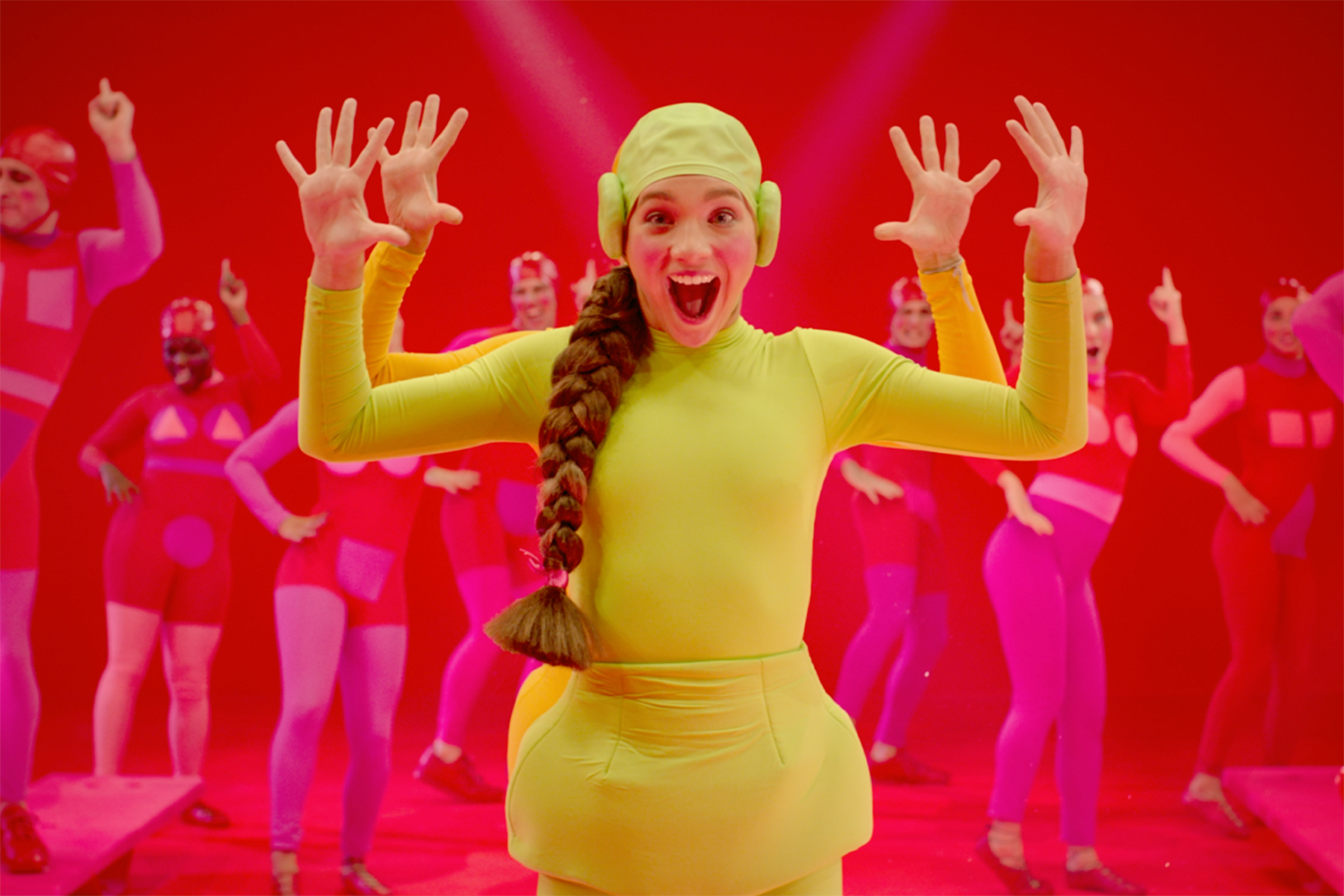
Trigger Warning: Restraint, ableism, racism
With Sia’s directorial debut Music having been theatrically released on February 12, one thing is certain: the film is an absolute train wreck. Autistic activists’ anger is justified, as it sensationalizes dangerous actions such as restraints, but it also makes the title character’s life look easy.
Right from the beginning, the film is offensive because of the exaggerated twitching and facial expressions that Music (played by Maddie Ziegler) makes. An autistic person can’t help but feel that the performance is a mockery, no different than a neurotypical person imitating and bullying them in high school. Since Ziegler was 14 at the time of filming and stated that she was afraid of mocking autistic people, she cannot be blamed for the performance. She was most certainly pressured into the role and failed by the adults around her.
Although the character is labeled as high-support needs, Music is able to dress herself and walk around her city unattended. Sia intended the character to be “low-functioning,” but having the character require more support would paint a more accurate picture of the people that she’s trying to represent. On the flip side, there are many nonspeakers who are also able to dress and take care of themselves as well. Her neighbors are also very loving and supportive, which might be true in some cases, but autistic people are generally ostracized by their communities all too often. Even though the film is supposed to be a musical, it does tackle serious issues such as abuse and drug addiction, so it doesn’t make sense why the filmmakers couldn’t paint a more realistic picture of autism along the way and show the struggles that many face. She also communicates with an iPad, but only to tell her emotions and yes/no. This could’ve been a great opportunity to get her to communicate more elaborate thoughts and flesh out her character. Instead, the character is used as a prop to make her sister Zu (played by Kate Hudson) a better person through an arc of redemption. Music doesn’t have any particular arc of her own, although the title is named after her.
What could elicit disastrous consequences for people viewing the film are the restraint scenes. Sia promised to remove the restraint scenes on February 4, but on Amazon Prime where I watched it, the scenes were still intact. The introduction of the character Ebo (played by Leslie Odom Jr.) shows him restraining Music, telling her that he’s “crushing her” with his love. This is incredibly dangerous, as it can inadvertently cause caregivers to think that prone restraint is safe. However, prone restraint has killed at least 20 children. She also becomes instantly calm after being restrained, which is not how it works in real life. Ebo also talks about having an autistic brother, saying “he’s dead now. But it’s alright. Special needs are not well understood in my country. In fact, in my village, it was considered a curse.” He never mentions the brother again or anything about him. The fact that the film talks about an autistic person who died (possibly by restraint) and treats it as a throwaway line is despicable. It’s difficult to not wonder what happened to his brother and why. Music could have explored how autistic people are mistreated by such practices but fails the opportunity to do so.
Discrimination in the film doesn’t just stop at ableism. One Asian character’s mouth does not sync up with his lines when he speaks. It’s almost as if they accidentally started filming an old kung-fu movie. On top of that, when another Asian character dies, he is carried away into the afterlife in a rickshaw. Why they put that in the movie is anybody’s guess. There’s a scene where Zu sells drugs to a woman that’s watching her elderly mother, and the character implies that she takes drugs to numb herself because taking care of her mother is a burden to her, which sends a horrible message. Zu also has similar moments, like telling Ebo that she wants to take Music to the “people pound,” comparing an autistic girl to a dog. All of Music’s dreams also take place in a childlike realm with bright colors, which infantilizes her and perpetuates the stereotype that all autistic people think like children, even when they’re older. Not being able to talk does not reflect an autistic person’s inner state. When they walk in the park, Ebo and Zu talk about Music as if she’s not there, although he says that she understands what they’re saying, so it feels like a backhanded acknowledgement.
In a shoehorned cameo, Sia appears as herself, buying drugs off of Zu to send them to Haiti for people suffering from diseases. Judging from the scene, either Sia is attempting to paint herself as a kind of hero figure, or she’s advocating for the selling of drugs, or both. Either way, the scene is a baffling addition to an already disastrous project. Speaking of Sia, all of the songs were made by her, but they are forgettable at best.
The film ends with the biggest twist of all: Zu is about to leave Music in an institution but decides not to. It seems that they wrote the scene to turn the ending of Rain Man on its head, but it subtly makes the audience think that they should be grateful for not institutionalizing her.
If you removed the autism from the equation, the movie fails on all fronts. Bad acting, bad dialogue, bad music and unlikable characters with no substance make this film a total failure. Even with an autistic actress in the role, this movie would have still bombed. Not only is it dangerous to a group of marginalized people, but it is painful to watch in general, with or without the restraint scenes. The bottom line is that this film should never have been made, and will forever be a blight in autism history.
